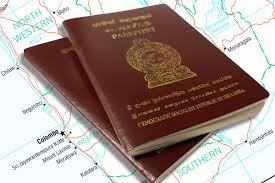
Travelling to India can be an exciting adventure, but it’s essential to be aware of the necessary requirements, especially when it comes to health-related matters like yellow fever vaccination. Yellow fever is a viral infection spread by mosquitoes in certain parts of the world, including Africa and South America. While India itself is not a yellow fever-endemic country, the Indian government has strict regulations regarding yellow fever vaccination for travelers coming from or traveling through endemic countries. Understanding these requirements is crucial to ensure a smooth and hassle-free journey to India. INDIAN VISA YELLOW FEVER REQUIREMENTS
Yellow Fever: Understanding the Disease
Before delving into the specific requirements for Indian visas, let’s first understand what yellow fever is. Yellow fever is a viral disease transmitted by infected mosquitoes, primarily in tropical areas of Africa and South America. The virus can cause severe symptoms, including fever, jaundice, and in some cases, organ failure and death. There is no specific treatment for yellow fever, but the yellow fever vaccine is highly effective in preventing it.
Yellow Fever Vaccination: A Mandatory Requirement
For travelers entering India from yellow fever-endemic countries, the yellow fever vaccination is a mandatory requirement. The Indian government requires proof of yellow fever vaccination if you have been in or traveled through a yellow fever-endemic country within six days before entering India. This requirement is in place to prevent the importation of yellow fever virus into India, where the Aedes aegypti mosquito, the primary vector of yellow fever, is present.
Indian Visa Application: Yellow Fever Certificate
When applying for an Indian visa, travelers from yellow fever-endemic countries must submit a copy of their yellow fever vaccination certificate along with their visa application. The vaccination certificate should clearly indicate the date of vaccination and the validity of the vaccine, which is typically ten years from the date of vaccination. Without a valid yellow fever vaccination certificate, travelers may be denied entry into India or subjected to vaccination at the port of entry, which can be a costly and time-consuming process.
Exemptions and Exceptions
There are some exemptions and exceptions to the yellow fever vaccination requirement for travelers entering India. These include:
- Infants below the age of six months.
- Travelers with a contraindication to yellow fever vaccine, such as a severe allergy to any component of the vaccine.
- Travelers who have not traveled through or been in a yellow fever-endemic country within six days before entering India. Indian Visa for Rwanda Citizens
Important Considerations
It’s essential to keep the following points in mind when traveling to India from yellow fever-endemic countries:
- Plan Ahead: Make sure to get vaccinated well in advance of your travel date, as it takes at least ten days for the vaccine to become effective.
- Keep Your Certificate Safe: Carry your yellow fever vaccination certificate with you at all times during your travels, as you may be asked to present it at immigration checkpoints.
- Be Aware of Entry Requirements: Stay informed about the latest entry requirements for India, as they may change based on the prevailing public health situation.
- Consult a Healthcare Provider: If you have any questions or concerns about yellow fever vaccination, consult a healthcare provider or travel medicine specialist before your trip.
Conclusion
Understanding the Indian visa yellow fever requirements is essential for travelers from yellow fever-endemic countries planning to visit India. By ensuring that you have a valid yellow fever vaccination certificate and are aware of the relevant entry requirements, you can help ensure a smooth and hassle-free journey to India. Remember to plan ahead, keep your certificate safe, and stay informed about the latest requirements to make the most of your travel experience in India.





